Maps Teaching Resources
Bring geography to life in your classroom with printable maps of countries around the world, map worksheets and activities and a whole lot more! This teaching resource collection was created by the elementary teachers at Teach Starter to help you familiarize your students with different countries and their positions within the world.
This teaching resource collected includes both blank and labeled maps of various countries in the Northern and Southern hemispheres, so you can make the edits you need to fit your lesson planning needs.
Each printable and digital resource has been reviewed by the teachers on the Teach Starter team to ensure it's classroom-ready, so you can download and begin using it in the classroom right away.
New to using maps in your classroom or looking for some fresh ideas to take your students on an adventure of the world, the country, or even your own state? The teachers of Teach Starter have put together a few tips on using maps in the classroom.
What Are Maps? A Kid-Friendly Definition for Teachers
Trying to explain maps to your students? Here's a simple definition for kids:
A map is like a picture of a place, like your room, your school, or your city. It helps you understand where things are and how to get to them.
Maps are made up of special symbols and colors to help you find a variety of different things, like roads, rivers, mountains, and buildings. By using a map, you can find your way to a new place and explore the world around you!
How to Explain the Types of Maps to Kids
Throughout elementary school, students will encounter a variety of maps from a general one that outlines the boundary of a state like New York or Iowa to more detailed images that pinpoint right where their school sits in a neighborhood. Each map type serves its own purpose and can teach our students more about their community and our world.
Here's a look at some of the various types of maps you might share with your students:
- Political map — Shows the boundaries and locations of countries, states, and cities, as well as other man-made features such as roads
- Physical map — Shows the physical features of an area, such as mountains, rivers and lakes
- Topographic map — Shows the elevation and contours of an area and is often used for hiking or other outdoor activities
- Climate map — Shows the different types of climate in a region, such as temperature and precipitation patterns
- Road map — Shows the network of roads in an area and is typically used for driving directions
- Geological map — Shows the types of rocks and minerals found in an area, as well as fault lines and other geological features
- Nautical map — Shows the features of bodies of water, such as depth, currents and underwater hazards
- Thematic map — Shows a specific theme or topic, such as population density, natural resources or political affiliations
What Should Kids Know About Maps?
By the time they leave elementary school, students should have a solid understanding of maps and how they can use them to explore the broader world! Here are some of those map basics they should know:
- What's the purpose of a map? Kids should know that maps offer a visual representations of the world, which help us to locate places, find directions, and understand the relationship between different areas.
- The basic features: From a compass rose to a map key, kids need to be able to identify the features of a map and know how to use them.
- Reading and interpreting maps: Whether it's a road map, topographical map or weather maps, kids should know how to read it and how to interpret it.
- Cardinal directions: Kids should know the difference between north, south, east and west and how to use the four cardinal directions to navigate a map.
- Locating places: Kids need to learn to use coordinates — such as latitude and longitude — and how to locate places using them as well as pinpointing location with the use of landmarks, street names, and other features.
Why Are Maps Important in a Classroom?
This may seem obvious if you're teaching students geography or studying different types of terrain in earth science. But the value of maps in the classroom extends far beyond these more obvious examples.
Consider this:
- Learning to read a map helps young students learn to visualize and interpret data.
- Working with maps in the classroom help elementary students develop spatial skills.
- Maps that show boundary changes over time help students better understand history. For example, labeling a colonial map of the United States worksheet and comparing it to modern-day or even a map of the US during the Civil War offers a visual representation of the historical concepts.
- Map reading improves students' problem-solving skills.
- Maps provide students perspective about the world around them and far beyond their classroom doors.
- Plus Plan
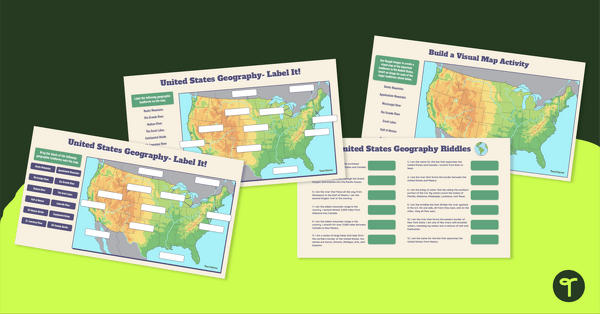
Major U.S. Landforms Google Interactive
Practice identification of the major rivers, mountains, and land features in the United States with a Google Interactive activity.
- Plus Plan
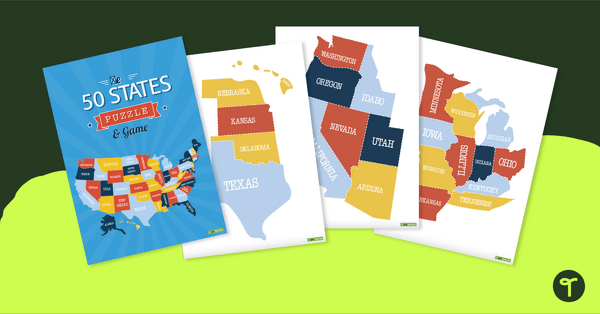
Map of the U.S. Puzzle and Game
A fun puzzle and game to use in the classroom when learning the names and geographical locations of the American States.
- Plus Plan
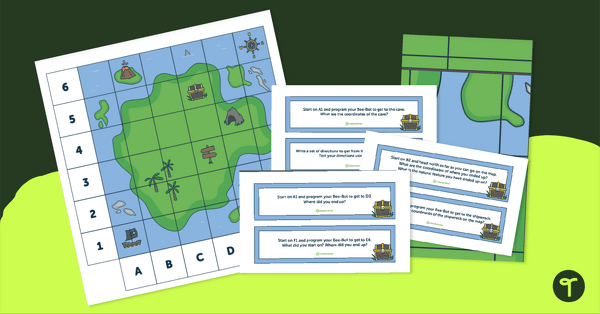
Treasure Map Coding Robot Mat
Implement coding for kids with coding robots and a printable coding robot map activity.
- Plus Plan
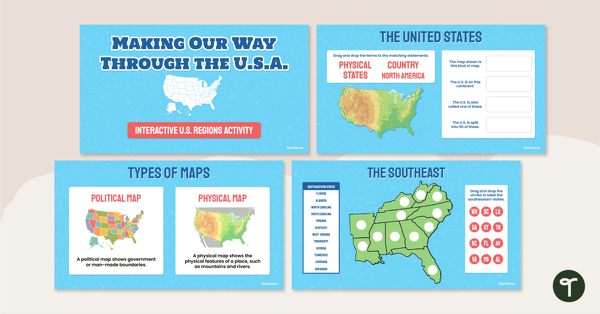
Google Interactive - Regions of the United States
Practice identifying states in the five regions of the United States with a Google Interactive activity.
- Plus Plan
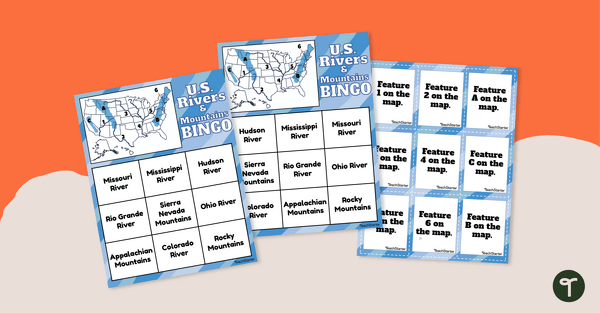
U.S. Rivers and Mountains Bingo Game
Practice identifying the major rivers and mountains in the United States with a Bingo Game.